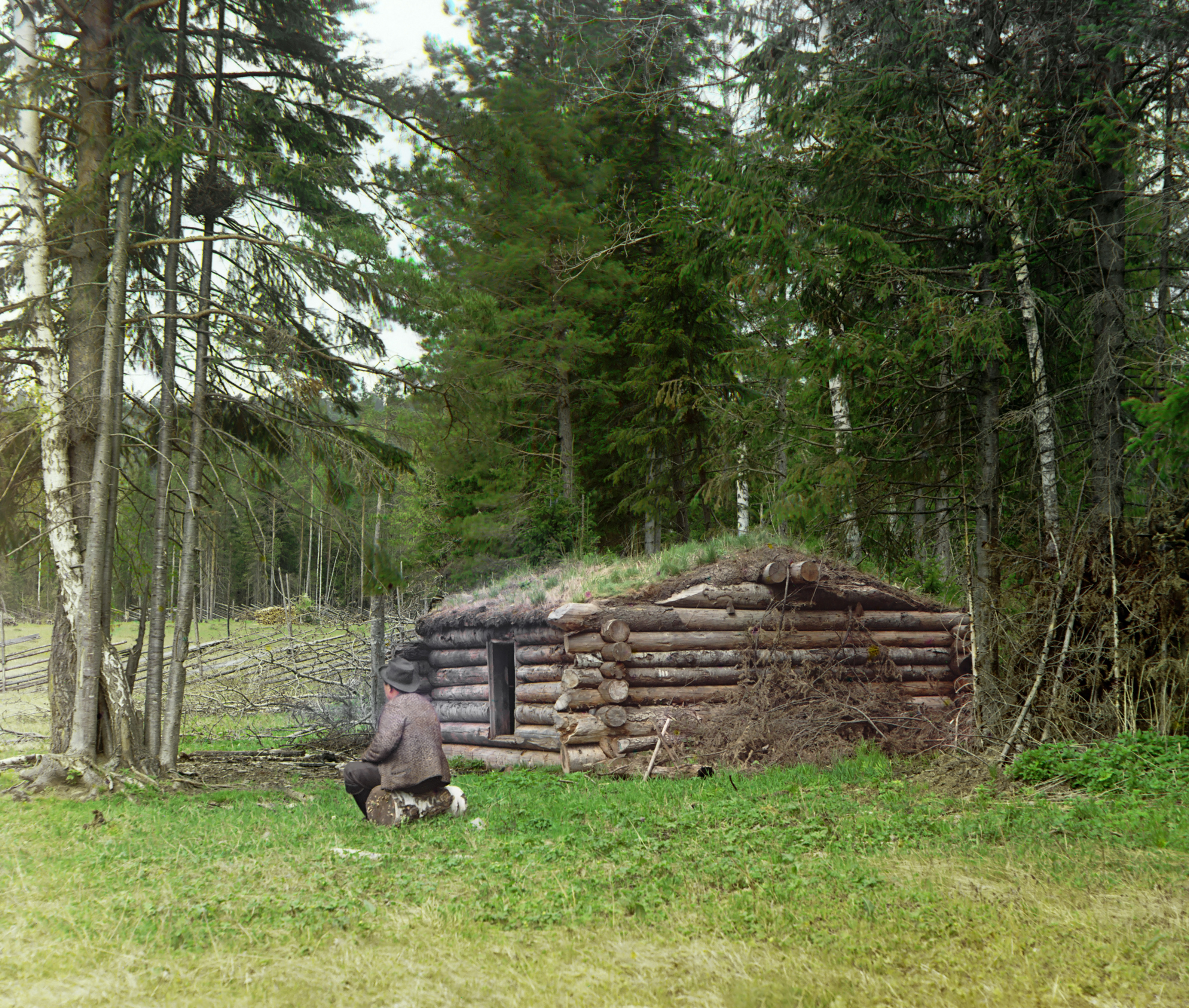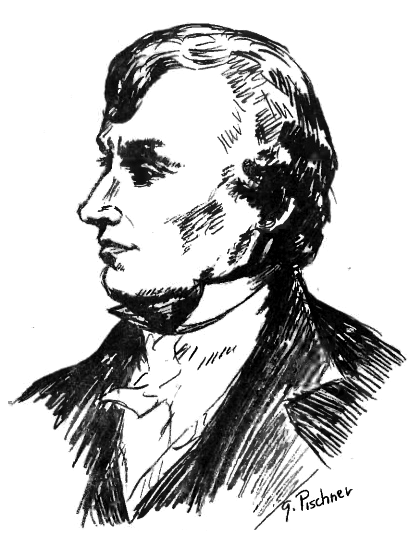|
Montgomery Bell State Park
Montgomery Bell State Park is a Tennessee state park in Burns, Tennessee, United States. The park covers and its official elevation is . However, due to the dissected wooded terrain typical of the Nashville Basin, actual elevations range from 580 feet (180 m) to 860 feet (260 m). The park is open for year-round recreation including boating, hiking, camping, fishing and golf. Montgomery Bell State Park was built during the Great Depression by members of the Works Progress Administration and Civilian Conservation Corps as Montgomery Bell Recreational Demonstration Area. Named for iron industrialist Montgomery Bell, the park is known as the birthplace of the Cumberland Presbyterian Church. History Montgomery Bell State Park is located in what was once the center of the iron industry in Middle Tennessee. The park's namesake, Montgomery Bell, arrived in Tennessee from his birthplace in Pennsylvania by way of Kentucky. Bell purchased an iron works at Cumberland Furnace, Tennessee ... [...More Info...] [...Related Items...] OR: [Wikipedia] [Google] [Baidu] |
List Of Tennessee State Parks
This is a list of state parks and natural areas in the U.S. state of Tennessee. State parks Tennessee has 56 designated state parks, operated by the Tennessee Department of Environment and Conservation (TDEC). The largest park, Justin P. Wilson Cumberland Trail, is made up of land along the Cumberland Trail, stretching from Cumberland Gap at the Virginia state line to Prentice Cooper State Forest in Marion County, just northwest of Chattanooga. The smallest state park is Bicentennial Capitol Mall, at just . State natural areas Tennessee has 85 state natural areas that are divided into two classes: *Class I – Scenic-Recreational *Class II – Natural-Scientific Nine areas have restricted access and are not open to the public; a tenth, Hubbard's Cave, has limited access during the summer. State scenic rivers Tennessee state scenic rivers are divided into three classes: *Class I – Natural River Area – Free flowing, unpolluted, and with primitive shorelines and s ... [...More Info...] [...Related Items...] OR: [Wikipedia] [Google] [Baidu] |
Cumberland Presbyterian Church
The Cumberland Presbyterian Church is a Presbyterian denomination spawned by the Second Great Awakening. Matthew H. Gore, The History of the Cumberland Presbyterian Church in Kentucky to 1988, (Memphis, Tennessee: Joint Heritage Committee, 2000). In 2019, it had 65,087 members and 673 congregations, of which 51 were located outside of the United States. The word ''Cumberland'' comes from the Cumberland River valley where the church was founded. History Formation The divisions which led to the formation of the Cumberland Presbyterian Church can be traced back to the First Great Awakening. At that time, Presbyterians in North America split between the ''Old Side'' (mainly congregations of Scottish and Scots-Irish extraction) who favored a doctrinally oriented church with a highly educated ministry and a ''New Side'' (mainly of English extraction) who put greater emphasis on the revivalistic techniques championed by the Great Awakening. The formal split between Old Side a ... [...More Info...] [...Related Items...] OR: [Wikipedia] [Google] [Baidu] |
War Of 1812
The War of 1812 (18 June 1812 – 17 February 1815) was fought by the United States, United States of America and its Indigenous peoples of the Americas, indigenous allies against the United Kingdom of Great Britain and Ireland, United Kingdom and its allies in British North America, with limited participation by Spanish Empire, Spain in Spanish Florida, Florida. It began when the United States United States declaration of war upon the United Kingdom, declared war on 18 June 1812 and, although peace terms were agreed upon in the December 1814 Treaty of Ghent, did not officially end until the peace treaty was ratified by 13th United States Congress, Congress on 17 February 1815. Tensions originated in long-standing differences over territorial expansion in North America and British support for Tecumseh's confederacy, Native American tribes who opposed US colonial settlement in the Northwest Territory. These escalated in 1807 after the Royal Navy began enforcing Orders in Council ... [...More Info...] [...Related Items...] OR: [Wikipedia] [Google] [Baidu] |
Presbyterian
Presbyterianism is a part of the Reformed tradition within Protestantism that broke from the Roman Catholic Church in Scotland by John Knox, who was a priest at St. Giles Cathedral (Church of Scotland). Presbyterian churches derive their name from the presbyterian form of church government by representative assemblies of elders. Many Reformed churches are organised this way, but the word ''Presbyterian'', when capitalized, is often applied to churches that trace their roots to the Church of Scotland or to English Dissenter groups that formed during the English Civil War. Presbyterian theology typically emphasizes the sovereignty of God, the authority of the Scriptures, and the necessity of grace through faith in Christ. Presbyterian church government was ensured in Scotland by the Acts of Union in 1707, which created the Kingdom of Great Britain. In fact, most Presbyterians found in England can trace a Scottish connection, and the Presbyterian denomination was also t ... [...More Info...] [...Related Items...] OR: [Wikipedia] [Google] [Baidu] |
Christian Denomination
A Christian denomination is a distinct religious body within Christianity that comprises all church congregations of the same kind, identifiable by traits such as a name, particular history, organization, leadership, theological doctrine, worship style and sometimes a founder. It is a secular and neutral term, generally used to denote any established Christian church. Unlike a cult or sect, a denomination is usually seen as part of the Christian religious mainstream. Most Christian denominations self-describe themselves as ''churches'', whereas some newer ones tend to interchangeably use the terms ''churches'', ''assemblies'', ''fellowships'', etc. Divisions between one group and another are defined by authority and doctrine; issues such as the nature of Jesus, the authority of apostolic succession, biblical hermeneutics, theology, ecclesiology, eschatology, and papal primacy may separate one denomination from another. Groups of denominations—often sharing broadly similar be ... [...More Info...] [...Related Items...] OR: [Wikipedia] [Google] [Baidu] |
Samuel McAdow
Samuel McAdow (1760–1844), a Presbyterian minister. One of the founders of the Cumberland Presbyterian Church in 1810. McAdow was born April 10, 1760, in North Carolina, the son of a farmer. He and his family were members of the Buffalo Presbyterian Church. His early education was temporarily interrupted by the American Revolution, but he completed his studies after the war and went on to study at Mecklenburg College. In November 1788, he married Henrietta Wheatly and they had five children, four of whom died at a young age. Although he was ordained, the time of his ordination is unknown. In 1800, after the death of his first wife, he turned his attention toward the West and McAdow began preaching in the area of the Red River in Logan County, Kentucky. In October of the same year, he married Catherine Clark who later bore him a daughter. During this time, he traveled and preached along the Ohio River in Kentucky. In 1806 he married for a third time, after Catherine's death. McA ... [...More Info...] [...Related Items...] OR: [Wikipedia] [Google] [Baidu] |
Log Cabin
A log cabin is a small log house, especially a less finished or less architecturally sophisticated structure. Log cabins have an ancient history in Europe, and in America are often associated with first generation home building by settlers. European history Construction with logs was described by Roman architect Vitruvius Pollio in his architectural treatise ''De Architectura''. He noted that in Pontus (modern-day northeastern Turkey), dwellings were constructed by laying logs horizontally overtop of each other and filling in the gaps with "chips and mud". Historically log cabin construction has its roots in Scandinavia and Eastern Europe. Although their origin is uncertain, the first log structures were probably being built in Northern Europe by the Bronze Age (about 3500 BC). C. A. Weslager describes Europeans as having: Nevertheless, a medieval log cabin was considered movable property (a chattel house), as evidenced by the relocation of Espåby village in 1557: the ... [...More Info...] [...Related Items...] OR: [Wikipedia] [Google] [Baidu] |
Cheatham County, Tennessee
Cheatham County ( ) is a county located in the U.S. state of Tennessee. As of the 2020 census, the population was 41,072. Its county seat is Ashland City. Cheatham County is part of the Nashville-Davidson–Murfreesboro–Franklin, TN Metropolitan Statistical Area. It is located in Middle Tennessee. History Cheatham County was created by an Act of the Tennessee General Assembly in 1856, from lands formerly of Davidson, Dickson, Montgomery, and Robertson counties. Cheatham County was named for Edward Saunders Cheatham, a state legislator. Geography According to the U.S. Census Bureau, the county has a total area of , of which is land and (1.5%) is water. The county is bisected from northwest to southeast by the Cumberland River, with Ashland City located on its northern bank. The southern portion of the county is bisected from southeast to northwest by the Harpeth River, which meanders through generally hilly country, and along whose course are located the com ... [...More Info...] [...Related Items...] OR: [Wikipedia] [Google] [Baidu] |
Pig Iron
Pig iron, also known as crude iron, is an intermediate product of the iron industry in the production of steel which is obtained by smelting iron ore in a blast furnace. Pig iron has a high carbon content, typically 3.8–4.7%, along with silica and other constituents of dross, which makes it brittle and not useful directly as a material except for limited applications. The traditional shape of the molds used for pig iron ingots is a branching structure formed in sand, with many individual ingots at right angles to a central channel or "runner", resembling a litter of piglets being nursed by a sow. When the metal had cooled and hardened, the smaller ingots (the "pigs") were simply broken from the runner (the "sow"), hence the name "pig iron". As pig iron is intended for remelting, the uneven size of the ingots and the inclusion of small amounts of sand cause only insignificant problems considering the ease of casting and handling them. History Smelting and producin ... [...More Info...] [...Related Items...] OR: [Wikipedia] [Google] [Baidu] |
Liberia
Liberia (), officially the Republic of Liberia, is a country on the West African coast. It is bordered by Sierra Leone to Liberia–Sierra Leone border, its northwest, Guinea to Guinea–Liberia border, its north, Ivory Coast to Ivory Coast–Liberia border, its east, and the Atlantic Ocean to its south and southwest. It has a population of around 5 million and covers an area of . English is the official language, but Languages of Liberia, over 20 indigenous languages are spoken, reflecting the country's ethnic and cultural diversity. The country's capital and largest List of cities in Liberia, city is Monrovia. Liberia began in the early 19th century as a project of the American Colonization Society (ACS), which believed black people would face better chances for freedom and prosperity in Africa than in the United States. Between 1822 and the outbreak of the American Civil War in 1861, more than 15,000 freed and free-born black people who faced social and legal oppression in ... [...More Info...] [...Related Items...] OR: [Wikipedia] [Google] [Baidu] |
American Colonization Society
The American Colonization Society (ACS), initially the Society for the Colonization of Free People of Color of America until 1837, was an American organization founded in 1816 by Robert Finley to encourage and support the migration of freeborn blacks and emancipated slaves to the continent of Africa. The American Colonization Society was established to address the prevailing view that free people of color could not integrate into U.S. society; their population had grown steadily following the American Revolutionary War, from 60,000 in 1790 to 300,000 by 1830. Slaveowners feared that these free Blacks might help their slaves to escape or rebel. In addition, many white Americans believed that African Americans were an inferior race, and, therefore, should be relocated to a place where they could live in peace, a place where they would not encounter prejudice, a place where they could be citizens. The African American community and the abolitionist movement overwhelmingly oppos ... [...More Info...] [...Related Items...] OR: [Wikipedia] [Google] [Baidu] |
Abolitionism In The United States
In the United States, abolitionism, the movement that sought to end slavery in the country, was active from the late colonial era until the American Civil War, the end of which brought about the abolition of American slavery through the Thirteenth Amendment to the United States Constitution (ratified 1865). The anti-slavery movement originated during the Age of Enlightenment, focused on ending the trans- Atlantic slave trade. In Colonial America, a few German Quakers issued the 1688 Germantown Quaker Petition Against Slavery, which marks the beginning of the American abolitionist movement. Before the Revolutionary War, evangelical colonists were the primary advocates for the opposition to slavery and the slave trade, doing so on humanitarian grounds. James Oglethorpe, the founder of the colony of Georgia, originally tried to prohibit slavery upon its founding, a decision that was eventually reversed. During the Revolutionary era, all states abolished the international sl ... [...More Info...] [...Related Items...] OR: [Wikipedia] [Google] [Baidu] |







